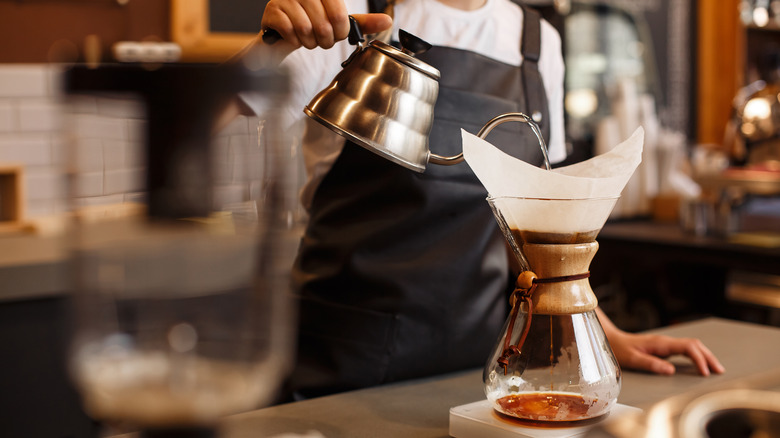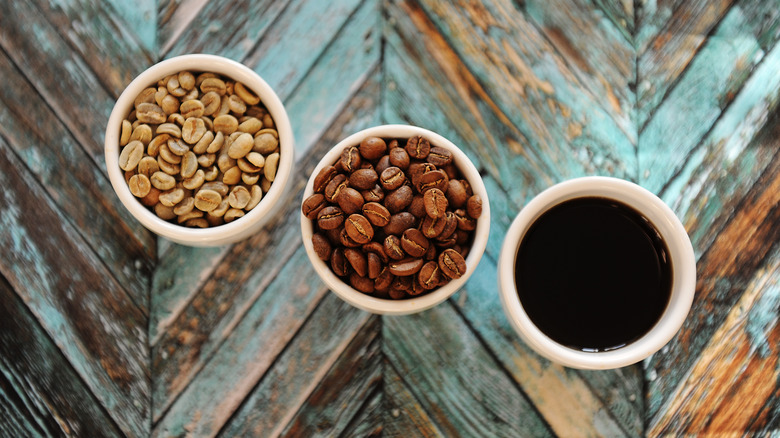What Sets Craft Coffee Apart From Regular Brews
With its somewhat nebulous definition, pinning down what exactly constitutes as craft coffee in precise terms is a difficult task. With no specific techniques, equipment, or conditions to define what is or isn't craft coffee, the singular thing that sets it apart from regular brews is the philosophy behind it: Craft coffee is made manually, with an emphasis on care and detail in the process.
While you don't need to be professionally trained to make craft coffee, it takes a little more than pushing a K-cup into your home machine and calling it a day. It's called craft coffee because there's a certain amount of effort, expertise, and thought that goes into crafting the brew. There are multiple factors to consider, including the quality and origin of the beans, the coarseness of the grind, the temperature of the water, the equipment used in brewing, and more.
Of course, the most important factor is manual precision during the process. You'd be amazed by how much of a difference just a little bit of know-how and manual skill can make when it comes to brewing coffee. Simple tips to learn, like knowing which roasts and grinds are best for pour-over coffee, always rinsing your filter first, and letting your coffee bloom before pouring in earnest, can elevate even the most mediocre grocery store coffee beans to an enjoyable brew. More than anything else, it's this attention to detail that defines and sets craft coffee above your average cup of java.
The difference between specialty coffee, third wave coffee, and craft coffee
When it comes to coffee terminology, designations like specialty coffee and third wave coffee are thrown around almost interchangeably in terms of craft coffee. While this is technically incorrect, there's a good reason it happens: Knowing enough about coffee sourcing and roasting to carefully select your beans is as much a part of the coffee-crafting process as the brewing itself, and that's where specialty coffee and third wave coffee get involved.
Unlike craft coffee, specialty coffee has a clear-cut definition. What most commonly qualifies as specialty-grade coffee in the United States is regulated by the Coffee Quality Institute and the Specialty Coffee Association. Both groups have very strict grading requirements for any batch of coffee to be considered specialty-grade, and a stamp of approval from either means you're getting the highest quality, cream-of-the-crop coffee commercially available.
This focus on quality above all comes from the third wave coffee mindset. Cropping up around the '80s and '90s, third wave coffee swept in after the convenience of first wave and the modernity of second wave coffee to insist on higher-quality standards starting from the source. Many people consider third wave coffee and craft coffee to be interchangeable because in practical terms, they often are. Establishments that call themselves third wave coffeeshops will more often than not have well-trained baristas who skillfully make the most of fresh, high-grade beans into quality cups of craft coffee.

